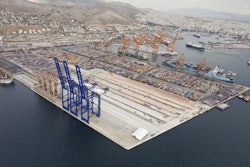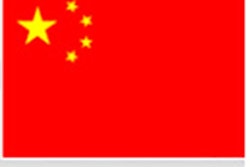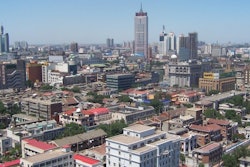Companies from Italy and China recently launched of a project to export Italian agri-food products to China by developing a model of "integrated logistics" between the two countries that creators said can ease and optimize bilateral exchange. Chinese logistics company Shanghai Haibo, which is a subsidiary of China's second-largest food group Bright Food, and Shanghai-based incubator and consulting firm Qiaolab signed an agreement at the weekend to create "the first Chinese hub in Italy" in the northern city of Bergamo.
The project, which also has the objective to import Chinese products to Italy in a second phase, was based on an innovative way of working to promote commercial exchange in a high-potential sector, Qiaolab CEO Alberto Fattori said.
Italian entrepreneurs currently have to find a distributor or a partner in the Chinese market to sell their products in China, often with complex perspectives. "The question was 'how to move products from one to the opposite side of the world more efficiently and put them on the market in a direct way?' Our answer was: integrated logistics," Fattori highlighted.
Agri-food products generally travel to China by cargo ship, which only allows exportation of those ones with a long shelf-life. "But most Italian products have to be consumed in a short time and need special conservation conditions. Integrate logistics is the model that permits to make distribution and sales plans in advance so that it is also convenient to carry out air transportation," the CEO explained to Xinhua.
He noted that Italian logistics is experienced in managing fresh produce while Chinese logistics has extraordinarily big spaces, which makes their integration a solid system to export the best of Italian produce while assuring top quality. As a result of this simplified process, final prices will also be more adequate.
"Our teams based in China and Italy will work hand in hand," Fattori underlined. Qiaolab will help select, based on quality standards, the Italian companies (around 100 have been chosen so far) and provide them procedural, logistical and commercial assistance.
Shanghai Haibo will make use of its large logistics and distribution structure to make the Italian products arrive on China's shelves, President of Shanghai Haibo and Vice President of Bright Food Group Zhu Hangming said. Bright Food Group has more than 3,300 retail stores and 650 hotels and restaurants in China.
"Also, thanks to our Internet infrastructure, Italian companies will be able to monitor the quantity and sales information of their products anytime," said Zhu, who visited some agri-food companies in the Mediterranean country at the weekend.
He explained to Xinhua that though there are many valuable agri-food products in Italy, only a few of them are known in China. "Selection of typical, unique products is an important part of our strategy to assure long-term penetration in the market. For this reason, intercultural communication plays a fundamental role," he said.
The new model was welcome by Italian Minister of Agricultural, Food and Forest Policies Maurizio Martina.
"The Italian government is willing to encourage logistics-integration projects between Italy and China," he said after meeting the projects' creators in Bergamo. Italy's agri-food export has recorded 30-billion-euro (41-billion-U.S. dollar) sales volumes, but the figure has the potential to double, Martina stressed.
To read more, click HERE.




















